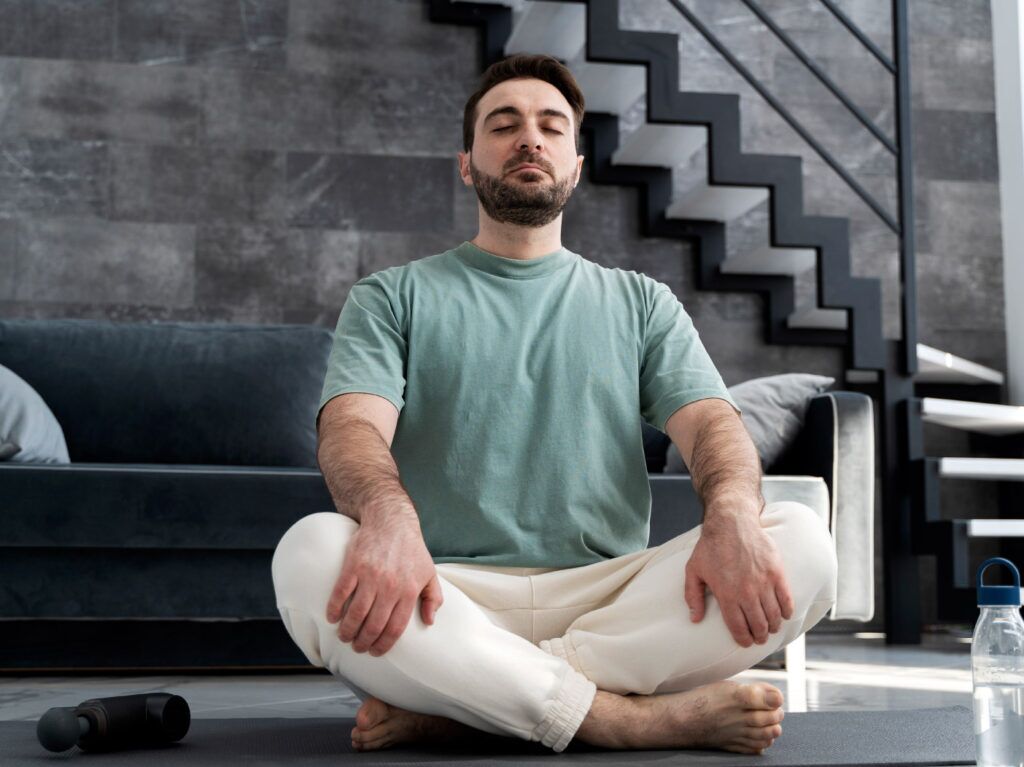Rest can be described as a restricted environmental stimulation technique. Therefore, when you rest, you stop responding to outside stimulus to replenish your energy. Taking a break at work and getting a good night’s sleep allows the body to recover.
It would be incorrect to define rest as only sleep because rest can also be done while being in the present moment. This means you can take a rest while walking or doing any restorative activity like yoga, or meditation. This is referred to as active rest. In contrast, activities that involve a lack of stimulation, like sleeping, taking a nap, reading a book or listening to music, are defined as passive rest.
If an average person needs eight hours of sleep in a day, this means one is sleeping for one-third of their life. While sleep is vital, so is rest, and the appropriate balance between performance and rest is what is needed for a healthy lifestyle. Rest helps you to combat the draining effects of burnout too as it helps to:
- Conserve energy
- Prevent injuries and illness
- Repair and restore tissues
- Reduce inflammation
- Restore cognitive function
- Regulate emotions
- Boosts the immune system
- Controls stress and anxiety
TYPES OF REST
1. Physical Rest
If you are feeling physically exhausted, slow down your pace or refrain from taking part in the ongoing activity. Engaging in restorative activities will help the body to repair and recover from the physical needs of daily life. Your muscle tension will relax, and you will have increased energy levels. So, take a good quality sleep, a leisurely walk or simply lie down when you are tired. Spending time at the gym or a spa is also a good way to stretch and relax your tired muscles.

2. Mental Rest
Your mind is constantly working to process the information you give it and help you make decisions and solve problems. This leads to mental fatigue, which increases your stress levels. This is the reason why you feel confused and disoriented after long hours of work. Mindfulness practices will give you the much-needed break from this relentless activity. For instance, meditation or engaging in some hobbies during short breaks helps your mind learn not to wander. If you can learn to manage your mental rest period properly, your brain will be more focused and alert.
3. Emotional Rest
Relationships demand a lot of commitment and can lead us to feel drained. They can also distract you and make you forget to take out time for yourself and to remember to process your own feelings. This leads to a situation of emotional imbalance and burnout, which will be exhausting in the end. So, learn to practice self-care or talk to a friend on a regular basis to avoid getting overloaded.
4. Sensory Rest
Sensory rest helps you reduce the strain on your senses. The calmer your senses are, the more focused your mind will be. For this, you have to refrain your sensory organs from bright lights, loud noises and screens whenever you can. In today’s lifestyle, turning off your electric devices is the most effective method, as we can readily become addicted to our phones and laptops. Other things you can do for sensory rest are:
- Sit in a quiet room
- Dim the lights
- Nature walk
- Deep breathing
5. Creative Rest
Only fresh minds can process new creative ideas. So, give your mentally exhausted brain some creative rest to rejuvenate your creativity. Superimpose new ideas in your brain through art, nature or music. Go out for a nature walk in between your work to get inspired by the natural beauty around you. It will be a good chance to clear your self-doubts and keep you inspired and motivated.
6. Social Rest
Social rest involves building social interactions that can give you a positive outlook in life. For that, surround yourself with people who are supportive and positive. Distance yourself from draining and stressful relationships as soon as possible. Fulfilling relationships will upgrade your mood and keep you happy and stress-free. For instance, if you have trust issues with your business partner, perhaps it’s time to seek therapy or end that relationship.
7. Spiritual Rest
Saying prayers and doing meditation builds your connection with something greater than yourself. This connection gives you a sense of calm and a renewed perspective on life. You can also work to practice compassion by volunteering for an important cause like serving the homeless community or underprivileged children. All these practices connect you with your inner self which further builds up your self-confidence.
WAYS TO PRACTICE TYPES OF REST
- Meditate Regularly

Meditation is an effective way to shift your mindset away from stress and tension. Meditation leads to improved self-esteem that can aid in your work and life. You don’t need to carve out hours in your day to meditate too, as you can also do it for a few minutes. Some simple methods for meditating are:
- Try and feel the orientation of your hands and feet with closed or open eyes.
- Pay attention to your breathing pattern.
- Take a few seconds to analyze your emotions.
- Practice Yoga
Yoga is meditation with motion. Those who are attending yoga classes must learn to be aware of the different asanas in a yoga class. Apart from calming your mind, these asanas reduce the strain on your muscles and tissues. Some asanas to further explore are:
- Sukhasana
- Tadasana
- Ardha chakrasana
- Bhujangasan and many more…
- Digital Detox
In today’s high-tech world, most of us spend more time on screens than with people. So, disconnecting from technology and social media at regular intervals will give your mind and spirit a great break. Step away from your cell phones, laptops, alarms and notifications whenever the information overload is causing anxiety and stress.
- Journaling

Make your pen and paper your friends. Maintaining a gratitude journal or a worry journal can help you process emotional burdens. Take the time to write down your fears, worries and things you are grateful for in life as this will alleviate anxiety and uplift your mood.
- Reset After Job
Make it a daily end-of-work habit to spend at least 15 minutes on any relaxation activity at the end of the day. Strive to have one evening dedicated to yourself and something you love to do, like watching your favorite movie or going out for a picnic with your loved ones.
CONCLUSION
By allowing your body to rest and recover, you will have a more balanced and healthier lifestyle. You will feel more energetic and focused if you are practicing different types of rest too. Take a nap, enjoy a hobby or a restful activity whenever possible.
Download the JOYSCORE app for uplifting your overall health and wellness.
https://joyscore.co/types-of-rest-to-make-you-feel-renewed-and-refreshed/